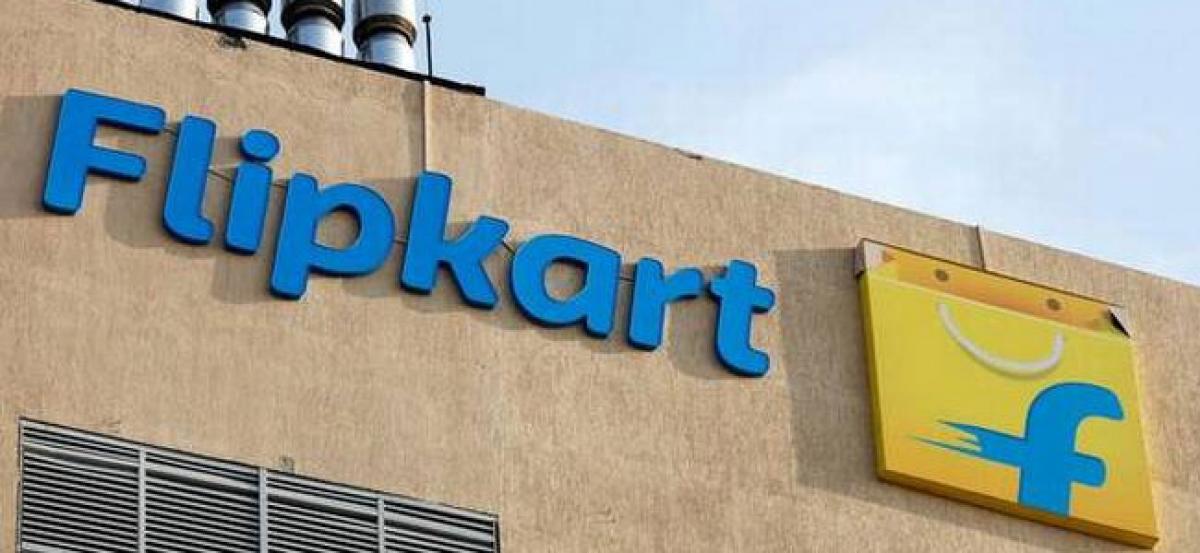Live
- Nehru’s services unforgettable : Veerlapalli
- ROB ready by March-end
- 30.1-9-49-10 – Anshul Kamboj picks up all 10 wickets in Haryana vs Kerala Ranji Trophy match
- South Korean FM Cho, Blinken hold talks on margins of APEC summit in Peru
- India’s insurance sector growth surpasses China, Thailand: McKinsey
- CLOSE-IN: Indian cricketers from Paupers to Princelings
- Delhi-NCR's air quality remains hazardous for residents
- South Korea, US, Japan to announce establishment of trilateral secretariat this week
- North Korean leader Kim orders mass production of suicide attack drones: KCNA
- Calcutta HC to hear next week plea for CBI probe into death of Jhargram Hospital doc
Just In

The Income Tax department will seek share purchase agreement from Flipkart on the mega $16 billion buyout by U.S. retail giant Walmart to assess the tax liability and also to find out whether the General Anti Avoidance Rules (GAAR) provisions can be invoked, an official said.
In the Walmart-Flipkart deal, the Revenue Department will go through the share purchase agreement to ascertain the purpose of investment and the emanating gains.
The Income Tax department will seek share purchase agreement from Flipkart on the mega $16 billion buyout by U.S. retail giant Walmart to assess the tax liability and also to find out whether the General Anti Avoidance Rules (GAAR) provisions can be invoked, an official said.
The department currently is going through the Section 9 (1) of the Income Tax law, which deals with indirect transfer provisions, to see if the benefits under the bilateral tax treaties with countries like Singapore and Mauritius, could be available for foreign investors selling stakes to Walmart.
Singapore-registered Flipkart Pvt. Ltd. holds majority stake in Flipkart India. As per the definitive agreement between the companies last week, Walmart will acquire about 77% stake in the Singapore entity for $16 billion.
The agreement will effectively result in transfer of ultimate ownership in Flipkart India to Walmart.
Revenue Dept. to seek agreement
To ascertain the exact tax liability, the Revenue Department will write to Flipkart seeking the share purchase agreement that the company had entered into with Walmart.
“The department will seek the share purchase agreement once the formalities for the sale are completed. The agreement will help in tracking the flow of funds and the ultimate beneficiary,” the official told PTI.
As regards applicability of GAAR, the official said it would apply in cases where the investments were made to avoid taxes.
In the Walmart-Flipkart deal, the Revenue Department will go through the share purchase agreement to ascertain the purpose of investment and the emanating gains.
On whether the benefits of bilateral tax treaties will be available in this deal, the official said the department will go through the details of different Double Taxation Avoidance Agreements (DTAAs) to ascertain whether taxes could be levied at concessional rate and investment made prior to a particular date can be grandfathered.
“There is likely to be capital gains withholding tax implications when the shares of Flipkart Singapore are sold by Softbank or other foreign investors. The tax rate will depend upon the facts of the case,” V. Lakshmikumaran, Managing Partner of law firm Lakshmikumaran & Sridharan said.
Tax liability
The tax department had last week written to Bentonville-Arkansas based Walmart saying that the U.S. company can seek guidance about the tax liability under Section 195 (2) of the I-T Act.
Under Section 195 of the Act, anyone making payment to non-residents is required to deduct tax (commonly known as withholding tax).
As per Section 9 (1) of I-T Act dealing with indirect transfer provisions, the value of shares of a foreign company is deemed to be substantially derived from India, if the value of the Indian assets is greater than 50% of its worldwide assets — a criteria that is apparently met in Flipkart’s case.
“In the Walmart-Flipkart deal, Section 9 (1) will apply as the assets of Flipkart Singapore are substantially based in India and hence the sellers would be liable to pay capital gains tax,” Titus & Co. Managing Partner Diljeet Titus opined.
As regards the capital gains tax made by Indian founders Sachin Bansal and Binny Bansal, the official said they would have to pay 20% tax with indexation benefit, which is applicable on sale of unlisted shares by Indian residents.

© 2024 Hyderabad Media House Limited/The Hans India. All rights reserved. Powered by hocalwire.com







